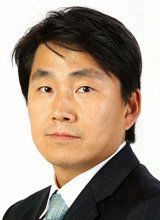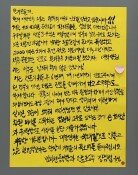Is it ‘green elite’ if I only ride Tesla
Is it ‘green elite’ if I only ride Tesla
Posted August. 22, 2020 07:48,
Updated August. 22, 2020 07:48

The stock price of Tesla, U.S. electric vehicle company, surpassed 2,000 dollars on the New York Stock Market on Thursday (local time). It means the stock price doubled within two months. Tesla cars are often seen on the streets of Seoul and more people in Korea are investing in the company's stock, while Tesla wiped out nearly half of domestic eco-friendly vehicle subsidies in the first half of this year in Korea.
Electric vehicles are eco-friendly, but electricity production, which is a power source, is not. According to the International Energy Agency, in China and India, where the dependence on coal-fired power generation is high and carbon emissions from the manufacturing process are high, electric vehicles emit more carbon than internal combustion engine vehicles. The United States is second only to China in terms of dependence on coal-fired power. Korea is the 8th largest coal-fired power generating country in the world. It's not something to boast about only because they're riding electric cars.
As the eco-friendly elite argued, in order to prevent climate change, it is correct to start producing cleaner and cheaper electricity before supplying electric vehicles with subsidies. Third way, an analysis agency in the United States, analyzed that a nuclear power plant replacing coal has the effect of reducing carbon emissions as much as production of 541,353 Tesla vehicles. According to the Korea Power Exchange, the cost of fuel is 6 won for nuclear power plants, 56 won for bituminous coal, and 93 won for natural gas. There are many eco-friendly elites who assert that nuclear power must be eliminated while many ordinary people can't turn on the air conditioner due to high electricity bills even in simmering heat.
There was also a case of kicking the footstool sticking to the “environmental correctness.” Last month, the National Assembly proposed the “Overseas Coal Power Plant Investment Prohibition Act 4,” which prevents public institutions from supporting foreign coal power plants. Although the purpose is understandable, there are criticisms from the industry that there are countries in which coal-fired power generation is inevitable depending on the energy situation, and that it is a policy that does not take into account the realistic situation in which Korean companies must compete with Japan and win plant business deals.
Climate change is an ongoing threat. There is no disagreement that mankind should come up with measures and take action. However, it is impossible to change the world by simply trying to show off while passing the burden and inconvenience to the common people and the market. Those people are the real “climate villains” who block the actions to climate change. Only realistic policies that can be understood and accepted by ordinary people living in this land will have a chance in the long fight against climate change.
Yong Park parky@donga.com
Headline News
- Med professors announce intention to leave hospitals starting Thursday
- Bridge honoring Sgt. Moon Jae-sik unveiled in Pennsylvania
- Chief of Staff Chung tells presidential secretaries to stay away from politics
- US FTC bans noncompete agreements
- N. Korea launches cyberattacks on S. Korea's defense companies







